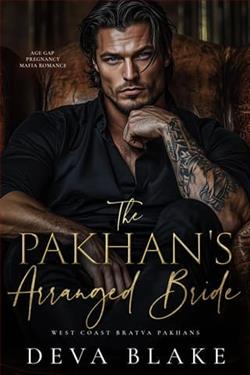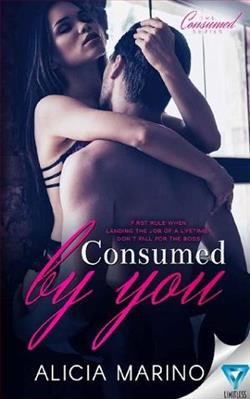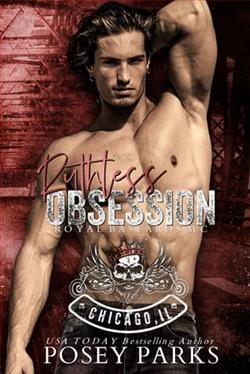Page 136 of High Season
She dashes back into the small galley kitchen at the back of the flat. She looks at home here, even though she only moved in a few months ago. She told Josie that it was the first place she had chosen for herself. Not a place passed down through family, or already owned by a boyfriend. Hers.
“Of course, it’s a whole lot smaller than I’m used to, and in a neighborhood that estate agents like to callup-and-coming,” she had said over congratulatory gin and tonics at a nearby pub. “But I like it. And I can afford it myself. And that stuff matters, doesn’t it?”
And Josie had agreed that it did.
Josie and Nic make their way to an ancient-looking drinks trolley stacked with liqueurs and spirits that haven’t been fashionable since the eighties and help themselves to two glasses and the remains of an already-open bottle of wine. In a vase on the side, Josie sees a clutch of tulips and smiles. Unthinkingly, her hand strays to her throat. The necklace that she has worn every day since her release from prison.J Tengraved on a silver heart. A small, perfect tulip.
She and Nic clink their glasses.
“To you,” Nic says.
Josie smiles.
“To both of us,” she says. “Thanks for coming over here, when it’s peak season.”
Nic shrugs.
“There’s always another summer,” he says.
Josie squeezes his hand. She loves him. She loves the simplicity of that belief: always another summer. It’s something she has never quite allowed herself to believe before. She thinks she would like to now.
They said that they were going to take things slowly at first, sheand Nic. Their relationship, if that was what they were going to call it, had been so fast at the beginning, and they wanted to give dating a try. A normal relationship, another thing that Josie had never really managed before. But after a few months of spending a couple of nights a week with Nic and living out of a backpack, Calvin had asked Josie how she’d feel about selling their childhood home.
“Me and Gabby want to move in together,” he had said over mugs of tea at the kitchen table. “And… well. I don’t want us to move in together here. It feels like a bad omen, this place. Too many…”
He trailed off, and Josie nodded. She understood exactly what he meant. Too many memories. Too many ghosts. Too many heartbreaks, and wrong turns, and losses.
They contacted an estate agent that afternoon.
Calvin used the money from the sale to buy a flat close to the beach.
“Do you think you might buy somewhere?” he asked.
“I don’t think so,” Josie said. “I actually had something else I was thinking of doing with the money.”
It was an idea she had back when the truth about Blake Drayton came out. For Josie, the news elicited an outpouring of sympathy. Letters from people who claimed to have always known she was innocent. Emails from around the world. But it also sparked messages from dozens of people, too many to count, who would tell Josie over and over again that their loved one had also been wrongfully convicted of a crime that they did not commit. Sketchy evidence, the wrong place at the wrong time. Victims of decades of domestic violence who had finally snapped. People who had been judged on their sexuality, or their race, or their past wrongdoings, rather than the facts of the case. Women who were released after a wrongful conviction was overturned only to come back to nothing—long-forgotten by their now grown-up children, abandoned by past partners. Having to start over, after the justice system spat them out.
That was when Josie knew what she wanted to do with her life. She would start a charity providing legal aid for wrongful conviction appeals, and support for people once they were released. She would help the kind of person that she had once been.
She registered the charity the day the money from the house sale landed in her account.
The last year has been grueling. Flights back and forth between France and the UK. Begging consultants and advisers to give her a cut-price rate and then funneling every spare penny back into the organization. Meetings with her lawyer, who was filing a wrongful conviction claim to get Josie the compensation she deserved after losing a decade of her life. Working odd shifts at the café, when she could.
And now, finally, her hard work is beginning to pay off. Josie has checked her accounts, and dares to hope that this month she might be able to start paying herself a small wage. She carries the knowledge of this inside her like a small, secreted jewel. Her first salaried job ever, and from an organization she herself founded. The thought makes her glow.
“Josie! Nic! You found something to drink?”
Craig, a human rights lawyer who Nina met when he was doing pro bono work for Josie, emerges from the kitchen. He sweeps Josie into a hug, delivers a bracing handshake to Nic.
“So good to see you both,” he says. “Nina was so pleased when you said you’d come.”
He and Nic immediately launch into a detailed conversation about plans they’ve already sketched out for Craig and Nina to visit next spring. Josie watches them, and feels a swell of love for Nic rise out of the center of her chest. She hasn’t told him about how close she is to making an actual full-time salary yet. They’re going to Iceland next month to see the northern lights, something that has been on Josie’s bucket list since she was a child. Her first proper holiday. She’ll tell him then. Give them something else to celebrate.
“I’ll get it!” Josie says when the door goes.
It’s Imogen, in London to promote the launch of the documentary. Her first (and last, if her newfound determination to stay out of the public eye is to be believed) television appearance. They’ve agreed to watch it together when it airs tonight. It seems fitting, when the documentary was what brought them all together in the first place. That prompted them to go looking for the truth at last.
“Dinner’s ready!” Nina says, emerging from the kitchen clutching an enormous casserole dish at the exact same time that the doorbell rings again.















